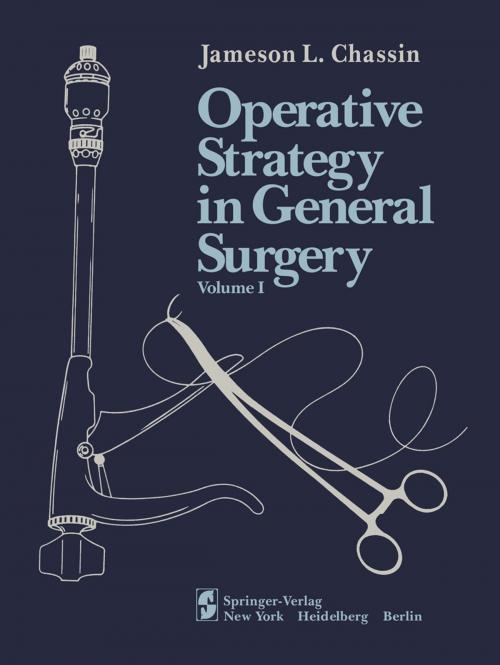Operative Strategy in General Surgery
An Expositive Atlas Volume I
Nonfiction, Health & Well Being, Medical, Surgery| Author: | Jameson L. Chassin | ISBN: | 9781461260424 |
| Publisher: | Springer New York | Publication: | December 6, 2012 |
| Imprint: | Springer | Language: | English |
| Author: | Jameson L. Chassin |
| ISBN: | 9781461260424 |
| Publisher: | Springer New York |
| Publication: | December 6, 2012 |
| Imprint: | Springer |
| Language: | English |
This surgical atlas should be of great value to all clinical surgeons, both those in training and those in surgical practice, and Dr. Chassin is su perbly qualified to author this work. During more than three decades as a member of the faculty of the New York University School of Medicine, he has taught countless residents many aspects of the art of surgical technique. One measure of Dr. Chassin's unusual teaching ability is that he is both Professor of Clinical Surgery at New Y or k University and Director of Surgery at Booth Memorial Hospital, where our fourth-year surgical residents have rotated regularly for the past 12 years. Booth Memorial is the only hospital outside the New York University Medical Center to which New York University residents rotate. This simple fact well underlines Dr. Chassin's remarkable capability for teaching. When a surgical complication develops after an operation, two or three possibilities should be considered. First, of course, was the diag nosis correct? If it was, then the cause of the complication is usually either an inadequate operative technique or a flawed concept underlying the selection of the operative procedure. When the surgical technique seems faultless, a postoperative complication would strongly indicate that the concept was erroneous, albeit cherished perhaps for decades. Unlike any other atlas on operative technique, this book specifically discusses the conceptual basis of the operation as well as the strategy that will help the surgeon avoid common pitfalls.
This surgical atlas should be of great value to all clinical surgeons, both those in training and those in surgical practice, and Dr. Chassin is su perbly qualified to author this work. During more than three decades as a member of the faculty of the New York University School of Medicine, he has taught countless residents many aspects of the art of surgical technique. One measure of Dr. Chassin's unusual teaching ability is that he is both Professor of Clinical Surgery at New Y or k University and Director of Surgery at Booth Memorial Hospital, where our fourth-year surgical residents have rotated regularly for the past 12 years. Booth Memorial is the only hospital outside the New York University Medical Center to which New York University residents rotate. This simple fact well underlines Dr. Chassin's remarkable capability for teaching. When a surgical complication develops after an operation, two or three possibilities should be considered. First, of course, was the diag nosis correct? If it was, then the cause of the complication is usually either an inadequate operative technique or a flawed concept underlying the selection of the operative procedure. When the surgical technique seems faultless, a postoperative complication would strongly indicate that the concept was erroneous, albeit cherished perhaps for decades. Unlike any other atlas on operative technique, this book specifically discusses the conceptual basis of the operation as well as the strategy that will help the surgeon avoid common pitfalls.















